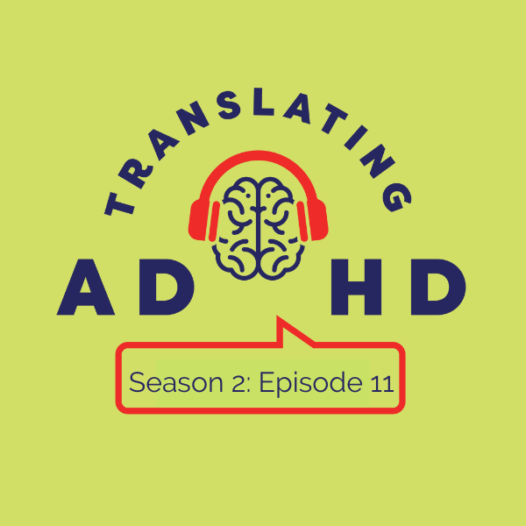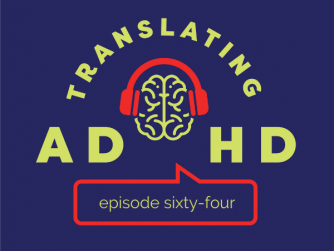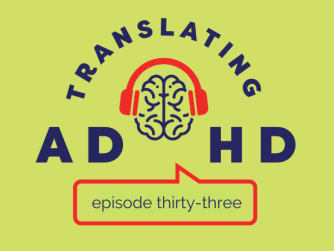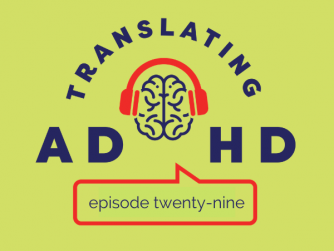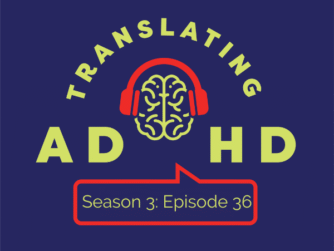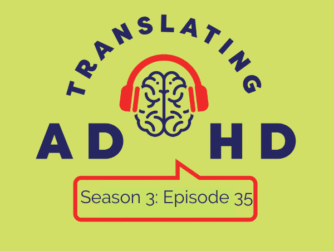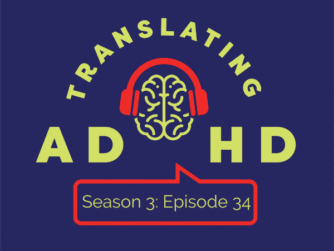In this episode the hosts, Ash and Cam venture into the topic of readiness for coaching. Coaching is best utilized when clients are in a position to maximize the benefits. Ash and Cam discuss that timing is key to a successful run at coaching and that challenges with coaching can be mitigated by some level of work prior to coaching. They emphasize key elements of readiness for coaching, exploring topics like vulnerability, shame, and the transformative power of partnership. The hosts highlight the evolving nature of coaching relationships and the importance of building a practice of curiosity and reflection. They also share how coaches can help clients understand this process.
The episode also delves into their recent experience at the International ADHD Conference, sharing personal stories about navigating barriers and the coaching process. Finally, they introduce a new group coaching offering called Acceptance starting in January. They also discuss the importance of acceptance in dealing with ADHD barriers.
Episode links + resources:
For more of the Translating ADHD podcast:
- Episode Transcripts: visit TranslatingADHD.com and click on the episode
- Follow us on Twitter: @TranslatingADHD
- Visit the Website: TranslatingADHD.com
Episode Transcript:
[00:00:00] Ash: Hi, I’m Ash. [00:00:07] Cam: And I’m Cam. [00:00:09] Ash: And this is Translating ADHD. Before we jump into today’s topic, exciting announcement. We have a brand new group coaching offering for you for January.So Cam and I spent a little time together at the International Conference on ADHD last week, and one of the things that we wanted to do was bring something fresh to our group coaching. And we’re excited about this topic in general. And we’re very excited about this topic as a way to kick off the new year.
So Cam, you want to tell our listeners what we’ll be doing in the group coaching class that starts on January 24th?
[00:00:50] Cam: You bet, Ash. So, if you’re a listener of the podcast, you know that we have group coaching offerings, and they are themed because context matters. So Self-care, Resilience, Agency, Project X, Purpose, Equanimity have been past offerings. And we will rotate those in again. And we were thinking, what’s something that is in a similar vein that will resonate with our listeners? And we took it right out of our translate tagline, right around ownership and concerning own is acceptance. So on the 24th at 8:30 Eastern time, January. I love that sequencing. Yeah. [00:01:45] Ash: The information out there. [00:01:47] Cam: The randoms out there will get it anyway. It’s Acceptance. So acceptance, and I think that we know your experience with acceptance. We were, we’re often, we can struggle so mightily with acceptance. So we’ve done the, the episodes of, you know, what could have been and the grieving past, ADHD diagnosis, sort of, it comes to this acceptance of who I am and moving forward with that.And it can be so hard. We’ve been focusing, Ash, on these barriers, the ADHD barriers of, again, awareness, action, and learning. And that acceptance is so much of that process of being able to break through these barriers. Especially the acceptance of being at a barrier. And we talked about how it’s like we, I need to get away from this place as quickly as possible. This is an icky feeling. I hate this feeling. So acceptance is a really important concept. And that’s going to be our offering in the new year.
[00:02:53] Ash: To learn more and to apply to be a part of the course, visit translatingadhd. com and click on the group coaching tab. And, Cam, I agree with you there where you and I had a lot of energy around this topic. And we will certainly be bringing that to the class in January.So now, do you want to tell our listeners what it is we’re going to be talking about today?
[00:03:14] Cam: Yes. And I’ll do another side story in the sense that, we were just at the annual International Conference on ADHD in Baltimore, Maryland, my hometown. And Ash and I had an amazing event. We were asked by Brendan Mahan of ADHD Essentials to take part in this influencers lunch. And we actually taped an episode on curiosity, nuance and distinction and how we can use those to kind of look into big signals and break those big signals down into what’s really going on. So we did that for 20 minutes in a very loud expo room. And it was a new experience for Ash and me. And as we came out of that, the learning was like, Hey, we’re pretty darn good at this.So I just want to say to Ash, kudos to us for pulling that new experience off because I think we’re just leveling up our game here. So I’ve just another side note before we get into the topic of today.
[00:04:16] Ash: And a great illustration of the coaching process and what we’ve been talking about here: We had this new experience, this new context, and we went in wondering, can we put down 20 minutes of content in the way that we do it that’s not scripted, that is conversational with no breaks? We’d never tried to do that before. And neither one of us had even thought about the factor of noise and distraction mixed in. So stepping back for ourselves and getting that learning and appreciating how we’ve grown, how this skillset that we’ve cultivated together has grown for both of us in so many ways. [00:05:04] Cam: Awesome. So today’s episode is really on the tail of what we’ve been talking about, of navigating these three barriers. So the last 3 episodes, we’ve been talking about signs, you know, to indicate if you are stuck at a certain barrier. We started with awareness, then we went to action. And last week, we were talking about learning, which is where we’re kind of reinventing and always starting over, struggling to make things stick.So, as we move forward, We were thinking of a nice transition. We talked about readiness for coaching because readiness for coaching is this awareness of these barriers and there’s a real dilemma. And, oh, maybe I can resource something or someone outside myself to figure out this dilemma.
And I love, Ash, what you said was to focus on partnering here. And I think it’s brilliant because it is so indicative of readiness for coaching. I love what you said about readiness for coaching, It’s not that you are navigating those barriers of awareness, of getting new awareness, getting into action, getting into learning that’s being successful with coaching.
Readiness for coaching is, again, this willingness to partner with someone to look at these barriers to not only focus on the barriers and the dilemmas, but there’s got to be some positive change that I can create with someone. So there’s an element of sharing and vulnerability, as you said.
[00:06:51] Ash: Which makes our coaching relationships such an interesting example in the way that it started because I reached out to you because at the time you were the only person in my universe talking about ADHD in a way that made sense to me. And I had experience with you in a classroom environment where we had to do things like coach live when we were still very much learning, take criticism and critique that’s intended to be constructive.And so there was already a level of trust, both in terms of what you were doing with ADHD clients is real. It’s not snake oil. And also that in difficult situations and emotional situations, you show up in a way that’s comfortable for me. But there was also a pretty large barrier there, Cam. I realized when I arrived at the conference hotel, that the very first time I encountered you was 10 years ago, at that same conference hotel, for the NAPO conference.
You gave a presentation, and I’ve been following you ever since, and I’ve always been impressed by you. So, as a colleague, or a potential colleague, I had you up on this pedestal and was very afraid to articulate things that were very real and painful and shameful for me.
And even before that, and I know I’ve told you this before, but I’ll tell our listeners now, I never expected you to take me on as a client. Reading your website, you work with leaders innovators, and global creatives. And I’m like, Oh, I’m not there. I’m not there, And so that, that duality of being reserved, not wanting to show you my secret shame, and holding you up on a pedestal impacted our coaching relationship early on.
[00:09:03] Cam: So I think that it is very human to have that experience, right? Is that for years and years, we have had our ADHD experience all by ourselves. So it is again, we’re having our emotional experience. We’re having our narrative. We’re developing a belief system and it’s like, okay, here’s this guy and, and I’m not ready.And there’s this sort of, you know, I think listeners as you’re listening there, you might be thinking like, well, I’m never going to be ready for coaching. I think that might be actually an understandable place to be and might be assigned. You’re ready for coaching. You may never feel fully ready for coaching.
Okay. Over the weekend, I did a talk on emotion and how it tethers to presence a really important coaching skill set. I did that for coaches, and the thing that I wanted to emphasize more than anything is that, again, here we are with our ADHD and our emotional expression and emotional regulation and dysregulation, and coaches often make a mistake of meeting the client where they are and not thinking about the change they’re going to want to create with the client.
And so, change is hard, right? Asher, you were reaching out to me, it’s again, there’s this vulnerability in this, it’s scary, it’s scary to kind of like, okay, here we go, I’m gonna hire this person, not cheap. And I’m going to address, you know, my needs and my, and I get it, strengths and we’re going to develop this, right, co-create together. And we’re going to partner, and it’s designed to kind of bump into these, you know, not so fun things.
Like this truth of, oh, you know what, there’s some things I don’t want to share with this person who I respect. So in that situation though, that’s the thing that happens in coaching is that that willingness, recognition of here this is, it’s going on for me, but then letting that be and eventually what happened was, You were realizing, oh, we can’t proceed here until I share this truth.
And it was in that situation where it was like that sharing then allowed you to realize, Oh, I have to be vulnerable and share. And then then there was the opportunity for trust, right? As a coach, I’m modeling an open space. But I just want to say that, that shame is in the context of What are we trying to do here? We’re trying to understand our ADHD so we can create informed change.
So this is all in the context of what were you trying to do overall. So can we just go back there? We’ll come back to this place. But the other thing you shared was, Cam, things need to change. I want to hire you to help me do this. Do you recall what that was like? What was it that you were hiring me for?
Because that’s the context as the coach I’m holding and realizing you are NCRW, right? Naturally creative, resourceful, and whole. And that, yeah, we’re going to be bumping into things, and if that shame is too deep or too much, there’s other avenues for other work with other professionals. But this is understandable in this realization you came to of, oh, here’s this thing that I need to address, and I can address with my partner here.
[00:12:56] Ash: Yeah, Cam. So for those of you who haven’t listened to older episodes where we talk about where I was, I want to start there. I was on the couch. My organizing business was for all intents and purposes nearly dead. I was not responding to new inquiries. I was not responding to former clients that wanted to re-engage. And the work had just completely dried up. And I just couldn’t engage.And in hindsight, a lot of that had to do with a bit of an identity crisis I was having as this person building a career as a professional organizer who then discovered I have undiagnosed ADHD and that I couldn’t out-organize my ADHD anymore. Because the other big thing that was happening in my life is my then husband and I had just moved into a much larger house, and I couldn’t handle the stuff of managing our household.
I wasn’t showing up as a parent the way I wanted to. I just had no engagement anywhere. I was frozen and miserable, and I didn’t know how to even begin to claw my way out because it wasn’t one area of my life that felt like it was crumbling, that felt like what had worked before wasn’t working now. It was in every area of my life that I felt that way.
[00:14:36] Cam: But what was the ask? Right, because again, when you come to coaching, it’s sort of like, okay, this is tough. This is difficult. I’m running into something that I can’t solve. I’m not able to solve by myself. Right. So this willingness to partner, but what was the ask, Ash? What was the ask in the coaching? Right. As you come in, it’s like, I need you to help me with blank. What was the blank part? [00:15:07] Ash: Do you remember what it was? [00:15:10] Cam: No. [00:15:11] Ash: It was getting off the couch. Wasn’t it? [00:15:13] Cam: I think it was getting off the couch. And I think it was like, I’m on the couch and this sort of connection between because that was a while ago. I think, I mean, my hunch would be, it makes sense, is I’m on the couch, this recognition I’m on the couch, and it can no longer go this way it is. I can’t keep, you know, rationalizing being on the couch. I have to address this issue for me to move forward, and I’ve identified one of the dilemmas is ADHD. Right.And this is readiness for coaching is this recognition of, oh, okay, causation, right? Getting to and recognizing the ADD is coming into play in some way. I’m not sure how it is. I need to have someone help me understand it so I can then navigate and move forward. And in that situation, get off the couch.
As a coach, it’s like, yes, get off the coach and what, right? Just like in the, in my talk is like people come and it’s like, all they can do is maybe come. You know, in the leaky space suit and I’ll sort of expand on that and sort of kind of get to the coaching session and like, release everything, right.
You’re masking all day and just get there. It’s like, okay, I’ve made it and that is something to do. But then once you get there you’re able to take the leaky space suit off or the masking to be in a place and be vulnerable. That’s when you’re open to learning, to exploring, to exploring the coaching process with your coach to start to figure out, okay, we get off the couch and then what, right?
What are the goals? What is the change that we want to create here? Once you’re off the couch, I just go back to Hoth and the, right, recognizing how, Oh, what keeps me on the couch is Hoth. And then the thing that you said earlier about, again, the thing I felt like I couldn’t share with Cam, do you want to share that now, Ash?
[00:17:24] Ash: I do. So our first few sessions, we didn’t get much of anywhere. We didn’t get much of anywhere. And it increasingly got more uncomfortable for me to avoid saying the thing I needed to say, saying what was getting in the way. And not that you were making it uncomfortable, but that it was in the questions that you were asking, that was the thing I needed to say. That’s where we needed to go. And I knew it, but I was scared that I would be judged for it.And so the session that it finally came out, and here’s what it was listeners. I was playing the video game League of Legends all day every day. I still love that game, by the way. I’ve talked in other episodes about how my relationship with video gaming is a great indicator of what else is going on for me and something I pay attention to now. Am I paying to play for enjoyment or am I playing because it’s this immersive thing that requires all of your attention? And therefore it’s an incredible way to just shut out the negative thoughts. What’s not going well in my life? And that’s where I was.
And by the way, League of Legends is like, and gamers understand this, is known as such a toxic game, right? There were layers to my embarrassment here. Funnily enough, Cam, I was kind of embarrassed that it’s usually a game that is a track that young men play. Ha ha. So there’s a funny little new snippet.
But yeah, I was embarrassed, and I don’t remember what I said. I didn’t say much. I just barely got enough out to say, like, I’m spending all of my time doing this, and I burst into tears. And you responded by telling me a very similar story, similar type of game, even where you had a relationship with a video game because of your context and the intersection of your ADHD experience where you, like me, were using a video game to check out.
And phew, for me the entire tone of our coaching relationship changed then, because I stopped putting you on a pedestal. I saw this, oh you haven’t always been this, the incredibly successful, well-known respected entity that I know now today. You’ve had struggle too, and you still have struggle today. Whoa. Okay. Okay. Wow.
And it was in that same session I finally asked you the thing I wanted to know the answer to, which is, Cam, why in the hell did you take me on as a client in the first place? And I don’t know exactly what your answer was. But I know it was you seeing the powerful person I am today almost a decade ago, because you’re, you’re an incredible coach and because that’s what you do.
And that’s, by the way, one of the most important learnings I’ve ever had as a coach is you modeling that for me. And it’s something I carry forward into every coaching relationship I have with coaches. It’s necessary. Don’t partner with a client if you don’t think you can be that person for that client. Because that was critical, right? Having you reflecting to me here.
I don’t even think you know me. I’ve been in a few of your classes. You’ve heard me grappling with coaching, as new coaches do, and all of our awkwardness and struggling and trying to learn. But I didn’t think you knew me as more than a student or saw anything in me. And so hearing those things and hearing things that are true things that like, Oh, yeah, I, okay. Okay. Like, you helped me start to see some things in myself that I didn’t see before you helped me cut through the black-and-white thinking of I’m struggling mightily, therefore, I have no value. I have no strength. I have nothing to offer.
And you helped me see some positive things about myself that became threads that we started pulling on, that we’re still pulling on. We were having a completely unrelated conversation other than it’s in ADHD land about some threads that I’m pulling on today before we hit record that you connected some dots for me here today, a decade later.
[00:22:10] Cam: So, good questions. Again, sort of like, you know, what did, what did I see in you as a client? And it is that discovery process to, as you said, it’s like, coaches, it is taking the time to make sure that, okay, when you’re working with someone, you can support them and partner with them through their learning process. Through this process of discovery and creating positive change.And so partially it’s matching and taking the time. And there are people I work well with, and there are people I don’t work well with. And that’s fine. I am very selective because I have a unique approach. And so, coaches, finding your way of like, what is it you do so effectively? And who do you work with? You know, who do you work well with?
I did know you as a student, right? That’s really an opportunity for me when I see students in my class and be successful despite their ADHD. That’s what I saw. I saw you. I saw grit and resolve and tenacity, Asher. That’s what I saw. I saw lots of promise. And so when I see that, oh, here’s somebody who wants to do something amazing, and the specific dilemma is ADHD, I know it’s an entry point for our coaching.
But as we finish up here today, I want to go back to readiness, right. What’s the readiness here in the sense of, yeah, there may have been this recognition and shame around sharing, but then you did share, right? This sort of willingness to start with curiosity about the coaching, the coaching partnership. Developing a keen observer because I, again, those questions were to, okay, let’s talk about the sofa, and instead of going deeper into shame or self-loathing or dread, to explore the sofa experience.
That’s when we got to the ice station. This recognition of what I tend to do is close those doors and close them for 4 days. And it takes, you know, days to reopen that. So that process keen observer, number one. Number two is this willingness to experiment, to try to go through that loop of experimentation. And thirdly, we talked about this, and you brought this up the trust aspect is developing trust together.
And this is not blind trust in the coach. I’m going to be very clear with this. This is, again, partnering around trust, developing trust. We don’t start with trust. Trust is something we develop over some time, but being curious about what it is that we are building here and being open to the value of the coaching and how it matures, manifests, comes to fruition over some time because I can’t tell clients what the value of their coaching will be day one, right. We have to get in there and like, start doing some work and exploring and being open and trying. And then that power of reflection, right? That last week with the learning aspect and, again, becoming a student of your own ADHD, you checked all those boxes. You checked all those boxes.
[00:25:55] Ash: I got this. And then we, I know we need to… [00:25:57] Cam: I know I got it. I got it. I do have to finish up in like two, two, or three. [00:26:02] Ash: Partnership can only happen if both people can partner. I think that’s the big takeaway from today’s episode. And, coaches, I’ve had clients with whom I thought we would make good partners and we didn’t. And I’ve gotten better both on the front end by way of experience and practice of identifying clients that I will partner well with upfront and being selective. But it does take practice, so if you don’t feel like you’re there yet, don’t be discouraged.The same is true for what we just talked about, that scenario we just gave you, where I’m sure Cam knew I was withholding in some way. He didn’t brute force his way through. He coached me, and he kept coaching me. And you will sometimes run into a client where you hit a dead end, and you’re just not able to get there. I’ve had that happen, but don’t let that make you afraid as a coach to try.
I think there’s real bravery in coaching to try to invite the client in every way possible. To partner and to accept. Here we are for a circle back to the theme of acceptance that partnering, it’s not always going to be the right partnership for whatever reason, person-to-person reasons. The point in which you meet that client on their journey is. The same true for listeners looking for coaches. Just turn it around. It’s okay if a coaching relationship doesn’t work out. It’s an opportunity to examine why.
And here’s what I like to do, coaches. I like to tell clients that if it’s not a fit, let’s work together to figure out why. So that this partnership isn’t the right support for you at this moment in your journey, let’s see if we can do a little coaching work to figure out what is. And that’s not something I could have done 5, 6, or 7 years ago as a coach. And it’s something that took a lot of practice to develop comfort with.
But in hindsight, I see it as just another powerful way of partnering. Okay, I’m not attached to this being the right coaching relationship, the right support, to me being the right coach for you. And when you’re able to let go of that as a coach, it changes your approach a little bit. It makes it so much easier to address that thing in the room in one way or another, where it doesn’t feel right.
So if you’re a coach, if you’re working with a coach, something doesn’t feel right in that coaching relationship, even if you don’t have language for it, you don’t know what it is. Great opportunity to get curious, and I invite all of my clients to start there. Even if you don’t know what it is, you can’t hurt my feelings there. But if you’re open to it, let’s partner, get curious and see what we can find.
[00:29:31] Cam: That’s I think is a lovely place to finish up, Ash [00:29:34] Ash: So until next week, I’m Ash. [00:29:37] Cam: And I’m Cam. [00:29:37] Ash: And this was the Translating ADHD podcast. Thanks for listening.
